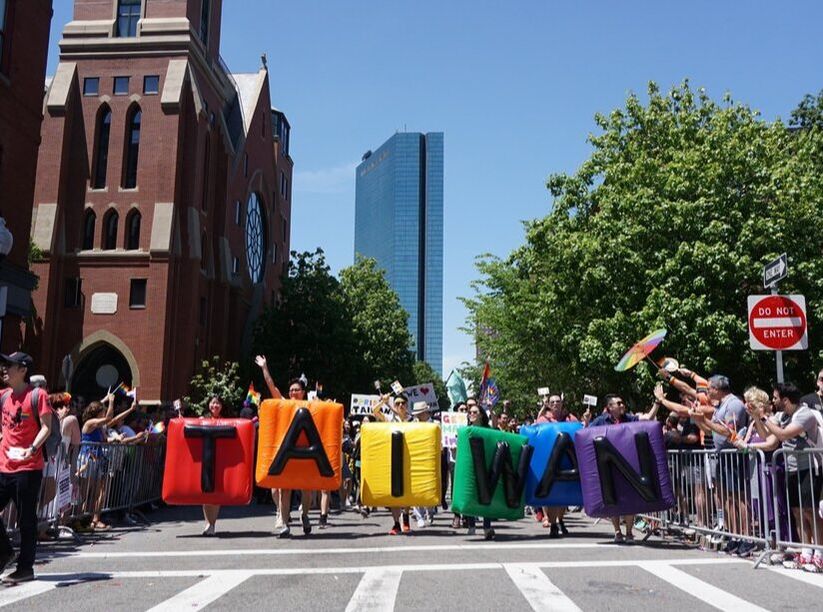|
|
|
In our Identities article, ‘I became a Taiwanese after I left Taiwan’: identity shift among young immigrants in the United States’, we seek to engage with transnationalism literature, which argues that migrants continue to remain concerned with their origin country. As our case study shows, successful assimilation into the host country does not mean migrants will relinquish their previous attachment. In fact, fresh experiences abroad might actually activate and intensify their homeland identity. Our study documents unpleasant contacts with people coming from People’s Republic of China (PRC) and personal experiences with the immigration rules that favour Taiwanese. Our interviewees also share the disenchanting discovery that America was actually lagging behind Taiwan in terms of healthcare, public transportation and recycling, which encourages these young migrants to cherish heir Taiwanese identity. In short, being Taiwanese is something one can take pride of, and therefore, our interviewees explained they do not want to be viewed by people from PRC as their 'compatriots’ or identified as ‘Chinese’ by their American friends.
More than one of my interviewed graduate students had the unpleasant experience on the very first day of their school orientation, as PRC students protested the listing of Taiwan as a country, which was perceived as an unfriendly gesture to Taiwanese students. Other daily encounters brought about further disillusionment, and they found out the shared language in no way brought them closer to PRC Chinese. Our article aims to shine light on some of the identity shift mechanisms that are unique to the immigration setting. We maintain that these cross-cultural interactions matter because they are largely absent in the domestic environment. As such, while these young aspiring Taiwanese were working diligently to be assimilated into the American host society, at the same time, both academically and professionally, their Taiwanese identity was also activated.
At home, young Taiwanese people’s attachment to their homeland is growing due to a number of factors including the wave of student movements in 2008-2014, the crackdown on Hong Kong’s prodemocracy movement in 2019, Taiwan’s successful responses to COVID in 2020, as well as the Russia’s invasion of Ukraine in 2022. However, our study reveals a parallel process only experienced by those who chose to leave Taiwan. That is the reason why we stress the situation-driven and context-driven identity shift mechanisms. Our article examines those causal pathways that trigger identity transformation in many daily encounters specific to an immigration setting. For instance, they are eager to explain to their American friends that they are ‘Taiwanese’, not ‘Chinese’. In seminar discussions on public health, Taiwanese students took the opportunity to emphasize that their country operates a world-class national health insurance system of its own. The above findings originate from a moment of epiphany during my research visit in Boston. There is a behind-the-scene story to this, which I would like to share. On June 8, 2019, I marched with nearly a hundred young Taiwanese in Boston’s Pride Parade. It was a beautiful Sunday afternoon. Enthusiastic parade participants held homemade #Asia’sFirst placards to broadcast the news that Taiwan had become the first Asian country to legalize same-sex marriage. Expectedly, they received cheering and thumbs-up from the street audience. In an event that celebrated diversity and inclusiveness, Taiwanese marchers carried symbols representative of that island nation, like the Formosan black bear, or pro-independence flags. There were only two other international groups signing up for the event in that year, and they were organized by their country’s consulates. By contrast, the sponsor Boston Taiwanese for Equality was merely a Facebook fan page, which had to crowdfund for the registration fee of $1,000 US Dollars. While the Taiwanese government maintained a consulate and a cultural centre for its diaspora community in the greater Boston area, diplomats and government officials were not involved in organizing. So why did this cohort of predominantly young Taiwanese graduate students and young professionals voluntarily pitch in for this occasion? They certainly embraced inclusive and tolerant liberal values and upheld the principle of marriage equality; but more importantly, they were ardently proud of being Taiwanese, even though most of them already had American citizenship or were in varying stages of naturalization. Returning to the literature on transnationalism referred to earlier, why these rather successful and upwardly mobile immigrants chose to stress their homeland identity is an intriguing case to analyze for migration students. The pride parade has been an epiphany for me. Until the parade, I had identified as a sociologist with a research concentration on social movements, labour and environmental issues. A research project comparing Taiwan’s and Hong Kong’s student movement brought me to Harvard Yenching Institute for one year. Having witnessed the spontaneous outpouring of nationalistic aspirations among the Taiwanese community, I began to collect in-depth interview data feverishly in my remaining two-month stay in Boston. With the help of local compatriots, I was able to interview twenty-nine Boston-based Taiwanese who were willing to share their personal stories of moving to the United States. Yao-Tai Li, my co-author and a specialist on migration studies, helped by developing the theoretical arguments and highlighting the key findings. As such, my personal epiphany and a cross-boundary collaboration network (Yao-Tai also moved from Hong Kong to Australia in the process) resulted in our Identities article about identity shift among young Taiwanese immigrants in the United States. The article furthers the discussion about transnationalism, particularly concerning the question of how immigrants cope with their daily encounters from casual chats in private to formal interactions in public settings, and the implications of this on identity formation and change.
Image credit: Author's own.
Blog post by Ming-sho Ho, National Taiwan University, Taiwan
Read the Identities article: Ho, M. and Li, Y. 'I became a Taiwanese after I left Taiwan': identity shift among young immigrants in the United States. (2022). Identities: Global Studies in Culture and Power. DOI: 10.1080/1070289X.2022.2109859
Read further in Identities:
Transnational and diasporic youth identities: exploring conceptual themes and future research agendas Chinese immigrant youth identities and belonging in Prato, Italy: exploring the intersections between migration and youth studies "They Have More Money but I Speak Better English!" Transnational Encounters between Filipina Domestics and Taiwanese Employers Comments are closed.
|
|
Explore Identities at tandfonline.com/GIDE |
|
The views and opinions expressed on The Identities Blog are solely those of the original blog post authors, and not of the journal, Taylor & Francis Group or the University of Glasgow.


